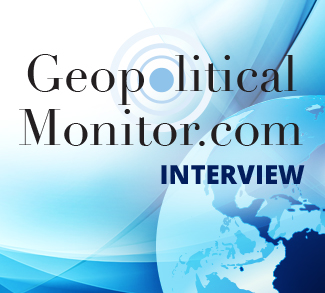Copenhagen and Durban: two conferences with two totally different sets of expectations. In the short amount of time between them, hope has collapsed under the weight of global cynicism. What a difference two years can make.
If you weren’t aware that delegations from around the world are currently gathering in Durban for a last-ditch effort to save the Kyoto Protocol– don’t take it so hard. After all, there’s almost no media attention being paid to the event, and why should there be? Most countries aren’t even bothering to send anything resembling a head of state. What’s more, yesterday’s climate heroes like India and Brazil are quietly crossing the picket line to the villains side by joining the United States call to delay negotiations on a legally binding treaty until at least 2015.
It’s hard to imagine that just two years ago, leaders from around the world were flying into Copenhagen to save the world from climate catastrophe. Back then, the mission was framed in apocalyptic terms: there had to be an agreement, there would be an agreement, failure simply wasn’t an option. However, in the end it seems that (so far) failure actually was an option, because CO2 continues to be pumped into the atmosphere unabated. What’s more, if Durban is anything to go by, it doesn’t even really bother global leaders so much anymore.
There are a myriad of reasons underpinning the tale of two conferences, but to put it simply: anything that could go wrong went so wrong that people started to forget what right looked like.
First off, there was the rebirth of the primacy of domestic politics, onset by the fallout from the financial crisis of 2008. Western governments have spent their way out of one crisis and into another. Now, the prospect of contributing to a $100 billion dollar global climate fund seems quixotic at best. In other words, the past two years’ events have tipped the scale between the certainty of economic development and the uncertainty of global environmental cooperation in favour of the former. There just isn’t a political appetite to seek a deal in Western countries, especially given the high ‘development guilt’ premium that will be needed for developing countries to sign off on it.
Secondly, and far more damaging, is the scientific scandals that have emerged over the past two years. Whether Climategate and Climategate 2.0 are fuelled by scientific reality or insidious make-believe is beyond the scope of this article. What is important is that they seem to have created enough doubt and suspicion to allow climate skeptics to elbow their way back into the mainstream discussion. Once again the debate is showing signs of shifting away from ‘what can be done to stop global warming’ and towards ‘does global warming exist?’
To recap: there is no political will in the West or the developing world, there’s no money to create a fund, and there’s still no agreement that a problem actually exists. No wonder most people have responded to Durban by looking out the window and sighing- that is, the ones who were aware that a climate conference was being held.
Thus, the worldwide effort to control global warming is pretty much back where it started. Kyoto will die and nothing is going to replace it. Some of the more optimistically inclined can point to progress in worldwide efforts to push renewable energy sources at the grassroots level. While better than nothing, these efforts are either being driven by government subsidies or market forces; neither of which have proved themselves capable of truly reigning in carbon emissions.
It seems that the world is in need of a ‘big ticket’ disaster with a clear link to carbon-induced climate change before there will be enough political will to implement a strong treaty. Such was the case in the lead-up to the Montreal Protocol in the fight against CFCs. Negotiators needed a massive hole in the ozone layer to point at before all parties would sign up to global regulations that hurt their comparative advantage.
Until then, let’s just hope that the skeptics are right.
Zachary Fillingham is a contributor to Geopoliticalmonitor.com



